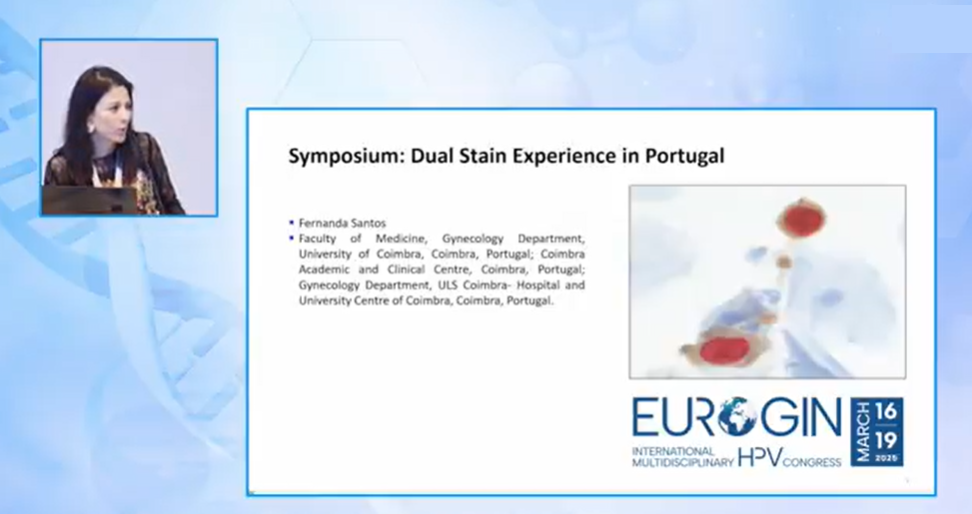Assistant Professor Fernanda Santos from the Faculty of Medicine (Gynaecology Department), University of Coimbra, a leading expert from Portugal, shares how p16/Ki-67 dual stain cytology is helping transform the country’s cervical cancer screening program at EUROGIN 2025. Despite the implementation of their national HPV vaccination program in 2008 and the transition from Pap cytology shifting to HPV primary screening in 2017, cervical cancer remains the third most common cancer among women aged 15–44 (2023).
In this session, Prof Santos discusses how the introduction of HPV screening, while offering higher sensitivity, also led to lower positive predictive value, leading to a rise in colposcopy referrals. The resulting increase in demand created long wait times for patients, in some cases up to a year. The backlog underscored a need for a more effective triage solution to improve risk stratification to ensure timely care for patients who are at greatest risk.
Through a retrospective study involving over 1,000 women, Prof Santos shares how the use of p16/Ki-67 dual stain cytology for triage of HPV-positive patients significantly reduced unnecessary colposcopies – 48.3% for women with 12 other high-risk HPV genotypes. Her group’s findings support the use of p16/Ki-67 dual stain cytology as a cost-effective, resource-optimising biomarker that improves triage, avoids overtreatment and is helping to share the future of cervical cancer screening in Portugal.








